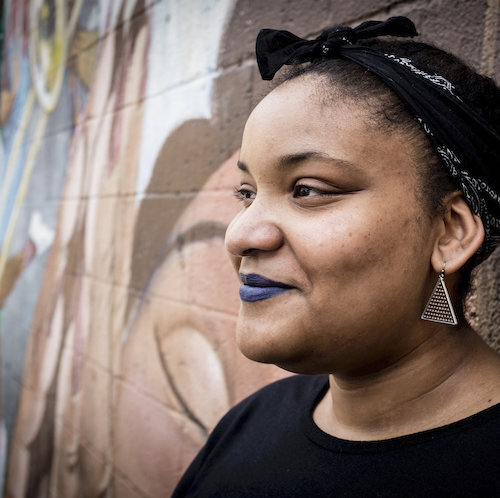Trust-Based Blog
Reimagining philanthropy begins with learning out loud.
By sharing ideas, with curiosity and humility, the Trust-Based Philanthropy Project blog features trust-based grantmakers who talk about their own lessons, questions, and aha-moments along their power-sharing journeys.

What Comes Next? Early Stage Reflections from TBP’s Senior Fellow
Earlier this year, I happily took on the role of Senior Fellow with the Trust-Based Philanthropy Project – driven by a sense that there was unfinished business from my previous role co-directing The Whitman Institute. These six months or so later, I have a slightly different purview.

When We Relinquish Power, Communities Are Better Off
“We can use our privilege to maintain the status quo, or create on-ramps to thriving communities and collective power.” -Julio Marcial

An Organizer-Turned-Funder Reimagines the Status Quo
“We need to change how we think about those who control the wealth and resources and those leading the work to achieve systemic change and racial justice.” -Isabel Sousa Rodriguez

Committing to Trust-Based Philanthropy Holds Us Accountable
“Once you publicly say you’re doing trust-based philanthropy, it puts you on the hook for really doing it.” -Stacey Faella

Moving Beyond 30-Page Applications: One United Way’s Radical Transformation
“As we continue to live into our trust-based values and practices, we see how this philosophy must extend beyond our grantmaking.” -Emily Johnston and Grace Pesch

Trust Is a Process, Not a Destination
“Walking with our partners towards their self-determined goals means moving with mutual accountability.” -Solomé Lemma

Earning & Extending Trust: Lessons from First-Time Grantmakers
In the summer of 2021, Sahar Driver, a veteran documentary impact producer and researcher, reached out to me with a proposition: would I help her launch a new initiative to fund, support and connect people of color-led and serving organizations in the documentary sector?
*Photo courtesy of Erica Lewis, Unsplash.

Learning Out Loud: What Nonprofits Are Saying About Trust-Based Philanthropy
In July and August 2022, the Trust-Based Philanthropy Project conducted three focus groups among nonprofit executive directors to understand how and whether they were experiencing shifts in power dynamics in their funder relationships.

Unfinished Business: Post-Spendout Reflections from TBP Senior Fellow Pia Infante
It has been just a few short months since The Whitman Institute, my beloved former institution, closed its doors for good. This ending was a deliberate one. While those of us on the team ended with a dual sense of pride and completion, I had a lingering sense of unfinished business.

Introducing Rashanda Freeman
The Trust-Based Philanthropy Project welcomed a new team member this summer, Rashanda Freeman, Communications & Engagement Lead. Get to know what brought her to Trust-Based Philanthropy, her ties to arts & culture, and what she’s looking forward to in the Q+A below.

Trust-Based Philanthropy is Grounded in Mutual Accountability and Learning
This post originally appeared on the bi3 blog. It has been reprinted here with permission.
There is a common misconception about trust-based philanthropy as extending “unconditional trust.” While the approach centers on building trusted relationships with grantees, this does not mean funders should abandon all expectations for mutual accountability and evaluation and learning. Quite the contrary, trust-based philanthropy is about building funder-grantee relationships grounded in power-sharing, transparency and mutual accountability to achieve the greatest impact.

Expanding the Scope of Trust-Based Philanthropy: How Funders are Helping Reshape Learning & Evaluation
The Trust-Based Philanthropy Project is partnering with the Fund for an Inclusive California (F4ICA) to chart a course for how philanthropy can reimagine learning and evaluation in alignment with community priorities. In this series, F4ICA will provide an overview of how they are reshaping learning and evaluation (L&E), delve into a case study of how they've partnered with community advisors to ensure L&E informs community-driven grantmaking and share practical steps and tools for peers in philanthropy interested in reimagining L&E at their own institution.

From Sex Workers to Chicken Farmers: Trust Based Philanthropy at Work in a Pandemic
When COVID-19 hit eastern Kenya, it shuttered entertainment spaces, brought strict curfews, and even stricter social distancing laws. Facing a sudden loss of income, some local sex workers turned to our grantee, EMAC, for help. They, in turn, came to us with a novel idea: training sex workers to become chicken farmers, giving them a sustainable source of income during the pandemic.

Four Key Insights For Funders Attempting to Shift Towards Unrestricted Funding
A recent report on unrestricted funding addresses commonly raised concerns and spotlights the advice, insights, and learnings from peer funders who have shifted to unrestricted grants. This post reflects on four key insights from the report that can guide funders in the transition to unrestricted funding.

We’re Here to Clear the Air on What Trust-Based Philanthropy is and What It Isn’t
In response to recent critiques that mischaracterized trust-based philanthropy in Alliance Magazine, founders of the Trust-Based Philanthropy Project offer clarity on the approach, its nuances, and the core equity values that define it.

Learning Out Loud: Lessons from Our Community
In our 2022 Community Survey, we heard back from 141 respondents. While the vast majority of participants are well on their way to implementing trust-based philanthropy, how they experience, implement, and see trust-based philanthropy was not a monolith.

Collective Impact Demands Nuance
“It’s the quality and depth of our relationships with partners that makes it okay to sit with conflict.” -Anonymous Storyteller

Healthy Relationships Help Us Deliver On Our Mission
“Trust-based philanthropy means that we’re understanding needs in the community, and that’s how we meet our mission.” -Denise Swartz

Leading with Trust Means Being Accountable to Community
There is abundance of work worthy of trust. In this reflection, Chicago Beyond shares how they’re reaching beyond the familiar partnerships and processes in order to root their work in being accountable to the freedom of communities they exist to serve.

Toward a Trust-Based Framework for Learning and Evaluation
In January 2022, more than 500 people across philanthropy joined us for a webinar exploring the question, “What does a more equitable and trust-based approach to learning and evaluation look like?” This blog post is a follow-up that webinar, and highlights lessons and insights about how funders can bring more trust and equity into learning and evaluation.

